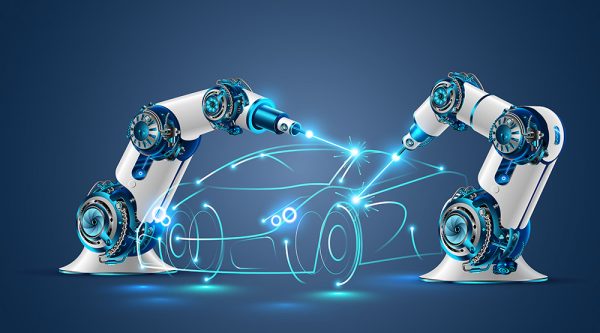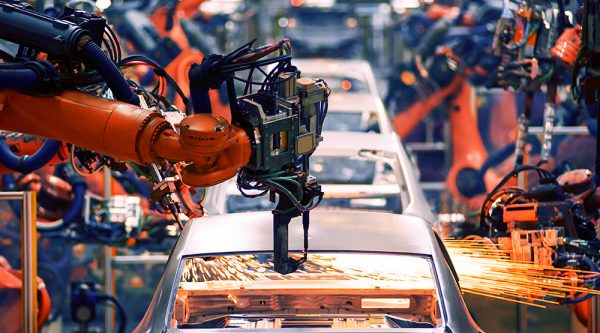
This site
is mobile
responsive

Globally, the automotive industry is undergoing an immense transformation. It is widespread across the industry, and it is being driven by a pertinent element such as industry 4.0 and efforts towards digitalisation of the entire value chain.
Industry 4.0 has opened up the possibilities of digital transformation in automotive and increases its importance for the automotive industry stakeholders to work within the mobility ecosystem.
Elements such as artificial intelligence, Internet of Things (IoT), additive manufacturing, robotics, cloud computing and machine learning has led companies across the value chain to become more efficient, flexible and responsive towards developing new business model including creating a new approach to engage customers as well as to deliver products and services.
Throughout 2019, the Malaysian automotive sub-sector has produced 571,632 motor vehicles. Of these, 534,115 are passenger vehicles and 37,517 are commercial vehicles. However, in 2019, a total of 604,287 motor vehicles were sold, comprising 550,179 passenger vehicles and 54,108 commercial vehicles.
As for sales, Malaysia’s Total Industry Volume (TIV) grew 1.0 per cent to 604,287 units in 2019 from 598,714 units recorded in 2018. Looking at this trifling growth, focusing solely on these technological solutions and in isolation may not be sufficient as thriving in a new reality of global automotive industry will likely require a willingness to reinvent all the aspects of the business including necessary support and commitment from the Government.
Considering this massive transformation, the Malaysian Government has revised the National Automotive Policy (NAP) to enhance Malaysia’s automotive industry in the era of digital industrial transformation from 2020 to 2030, thus enabling Malaysia to realise Connected Mobility.
The NAP was introduced on 22 March 2006 to transform the automotive industry as one of the significant contributors to our economy. Under the Third Industrial Master Plan (IMP3), 2006-2020, the NAP is one of the main thrust that outlined key directions and strategies in preparing the local automotive players towards a more competitive and sustainable automotive industry.

In 2009, the NAP was reviewed, to focus on enhancing the capabilities of the domestic automotive industry and creating a more conducive environment for both local and foreign companies.
The review of the NAP continued with the NAP 2014, which emphasised green initiatives, market expansion, as well as enhancement of the entire automotive ecosystem through the development of technology, human capital and supply chain. The ultimate objective of the NAP 2014 was to establish Malaysia as a regional Energy Efficient Vehicle (EEV) hub by the year 2020.
As the Malaysian automotive industry is expected to begin a challenging phase from 2020 onwards with the new technology invasion and shockwaves created across global market and emerging trends, the new NAP 2020 serves as a guiding policy to coordinate efforts by the Government and private sector to transform Malaysia into a regional centre for automotive research and development (R&D), manufacturing and sustainable development technologies.
NAP 2020 encourages new growth areas through integration of technology such as Next Generation Vehicle (NxGV), Mobility as a Service (MaaS), and Industrial Revolution 4.0 (IR4.0) which are in line with the development of future technologies. In summary, the NAP 2020 is a holistic policy that covers the comprehensive development of value chain, human capital ,indigenous technologies, aftermarket, exports, infrastructure and standards/ regulations.
MIDA encourages local or foreign industry stakeholders to participate in the development of the local automotive industry especially towards exploring the possibility of conducting in-depth R&D and engineering activities, build capabilities and capacity of the local workforce, as well as to enhance exports, investments and local production volume. MIDA remains committed to ensuring that the automotive industry continues to be competitive, domestically and globally. As such, MIDA will undertake more programmes and provide its assistance and facilitation to promote the development in the specific area needed, as stipulated in the NAP 2020.
